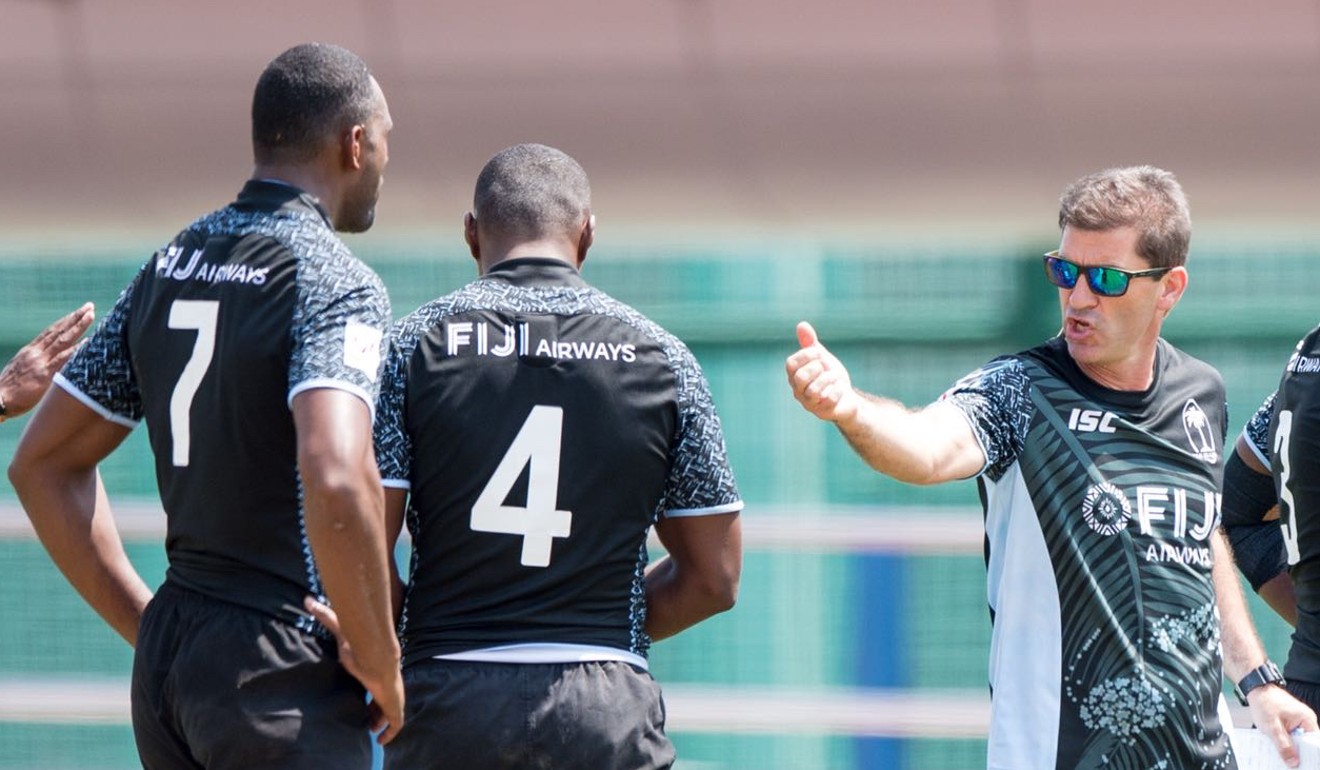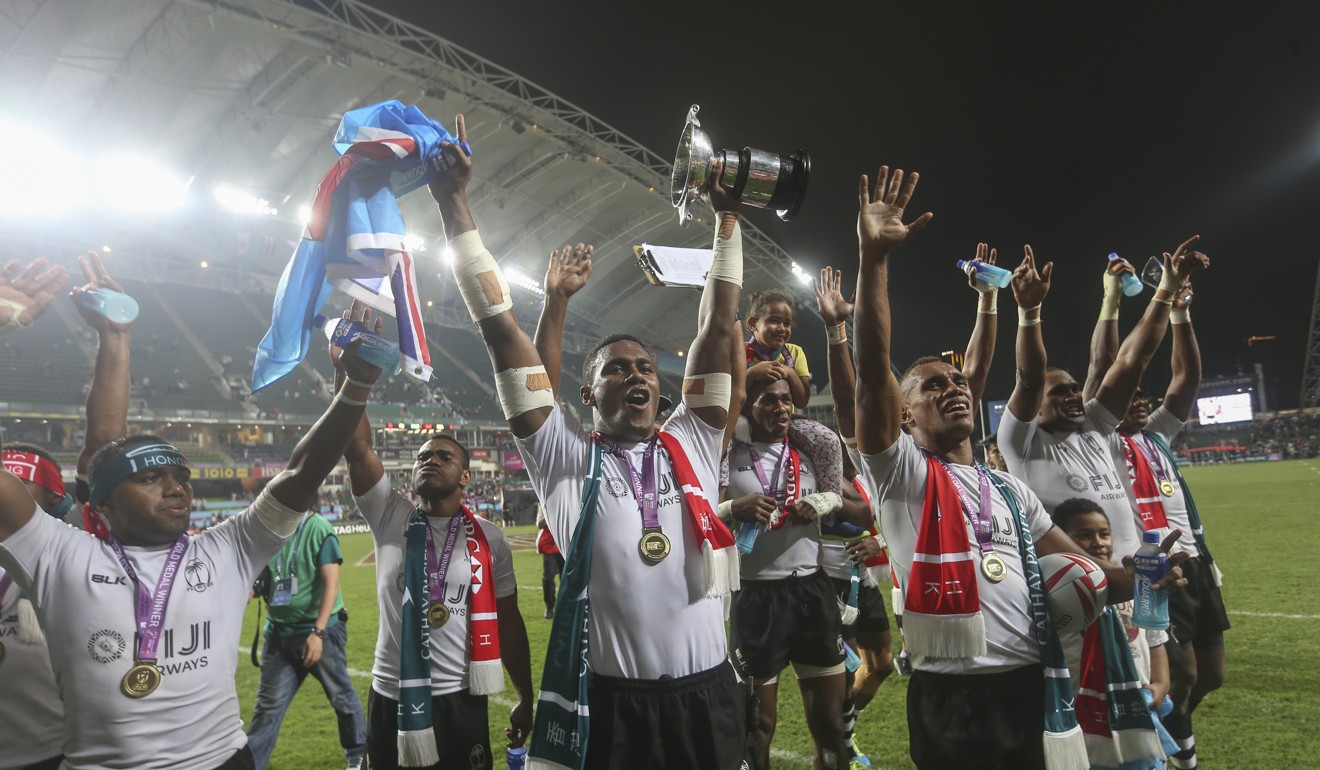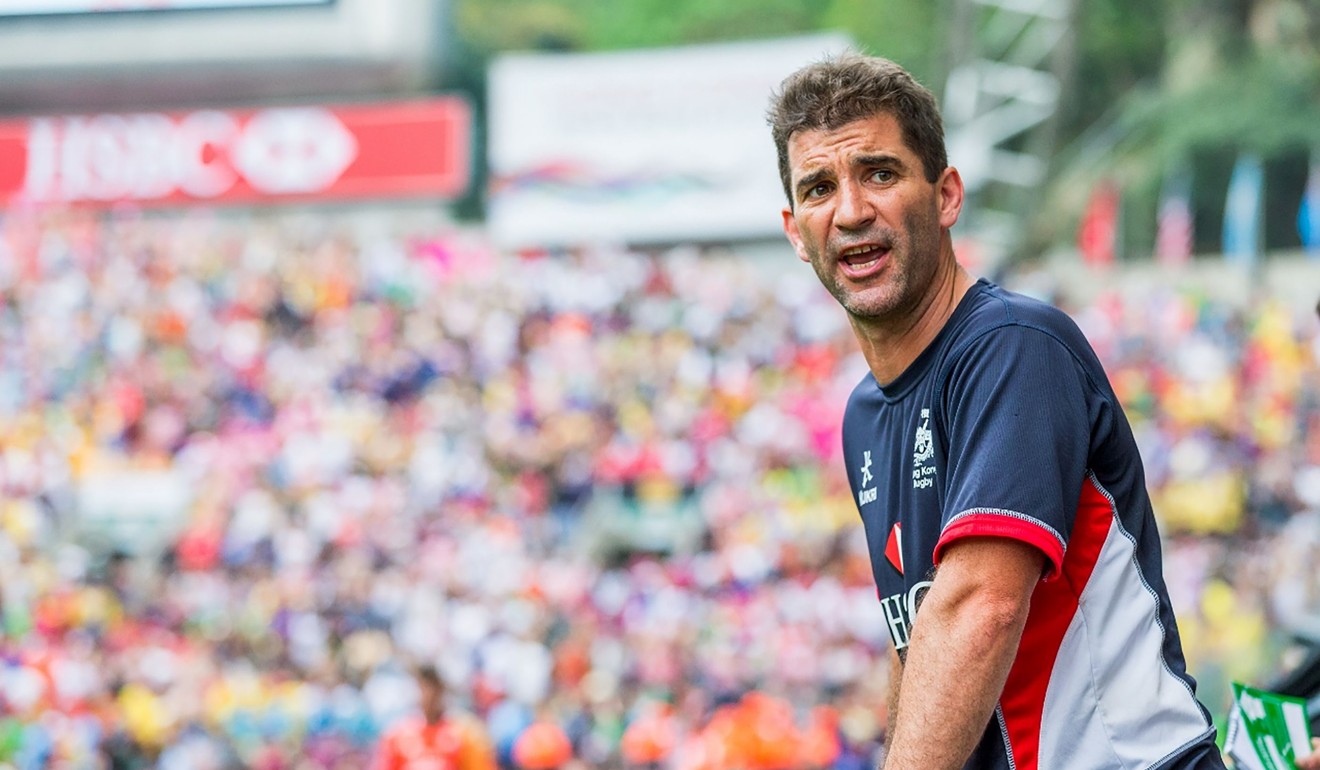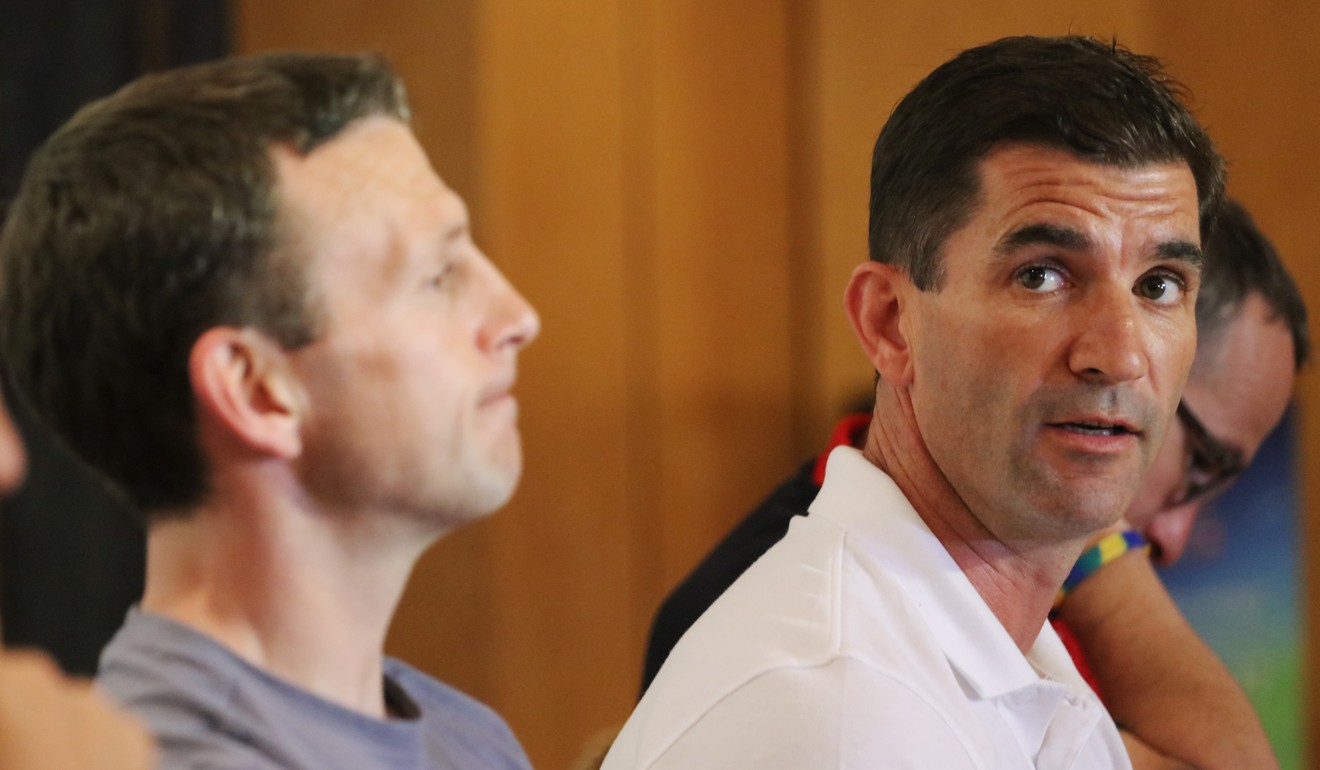
‘It’s there all the time’: ex-Hong Kong boss Gareth Baber gives an insight into the inescapable pressure of coaching Fiji
He’s over a year into his job and has proven his mettle, but no amount of success keeps the wolves at bay in a place where rugby is a religion
Stepping into the shoes of the revered Ben Ryan was never going to be easy and former Hong Kong coach Gareth Baber knows no amount of success will ease the pressure that comes with coaching Olympic champions Fiji.
He’s proven his mettle but, after over a year in the job, Baber accepts there is no escaping the expectation of the Fijian public and media as he and his family settle into a lifestyle that is the polar opposite to what they left behind in Hong Kong.
“There has been an adjustment for myself and my family coming from Hong Kong to Fiji, but that’s a nice challenge to have. My family have responded to it and I’m still responding to it,” he says.
“It’s there all the time,” Baber adds about the constant pressure to perform. “I had an idea of it before I came and once you get here you get a short period of time to work out in your own head if this is for you or if it’s not.
“It’s tough sometimes and I understand that the press demand wins and the public demand wins. Rugby is the lifeblood of the village and I understand entirely where it fits.

“All I can do is control what I can control. My job is to produce results and sometimes you have to take some hits to get where you need to go.”
Baber’s first step towards proving himself came this time 12 months ago when, amid talk of his future in the job, he steered Fiji to victory in Hong Kong, his first tournament win as coach and their only win of the season.
“It was a nice win. I got so close to that in the qualifiers with Hong Kong against Japan where we just narrowly lost [in 2016], but to get to a final at the end of a tournament is always nice,” he says.
“It’s quite surreal and quite eerie when you are the last couple of teams and you go over to So Kon Po and you train and it’s dark. There’s nobody else around then you go into the stadium.
“It was the best rugby we played all season and that’s what Fijians tend to do, they do rise to the occasion.”
Baber has Fiji up and flying now after a slow start – by Fijian expectations – to his tenure saw them finish third overall last season and then fail to crack the top three in the opening three tournaments this season.
But two wins and a third since have the Fijians snapping at the heels of series leaders South Africa and Baber is making his mark on the squad after vast player turnover early on.
He dreams of coaching in the Olympics himself – “I’m here long term, but I’m a coach and you’re beholden to results” – and it is a big few months ahead for him and his team.
He has crafted a squad that he thinks can win both this weekend and next week at the Commonwealth Games in Australia, before turning his attention to overall World Series glory and then the Sevens World Cup in San Francisco in July.
He’s seems comfortable in his own skin and admits he has had to adapt his coaching style, as well as his approach to the game itself.

“It’s different to Hong Kong in terms of the profile of the sport here and the level of competition you get in sevens,” he says.
“Sevens is the lifeblood of Fiji, you just have to tour around to see all the kids playing sevens before school, after school, in school.
“You can see how much it means to Fiji to be involved in sevens and at the top of the game. I’m not used to that and that takes some getting used to.”
He’s also had to come to terms with the wealth of talent at his disposal – by no means a bad problem to have after years of working with a shallow player pool in Hong Kong – and how to best harness that ability.
“The most difficult part was making selections based on that volume of players that you have. So you’re not just watching for five or six players, you’re seeing 15-20 players that are playing in a tournament,” he says.

“Probably the biggest one for me is the physical development, the physical development matched with the lifestyle choices of the players, and that’s your eating habits, your recovery habits and then how players manage themselves to physically develop.
“It’s putting the processes in place with the right coaches and the right people to be able to educate them of how they would be able to cope under pressure, how they would live their lives to be better players.”
Making sure he doesn’t over coach was a challenge at first, too.
“It makes you rethink some of your coaching and how you have done things in the past,” he says. “You work with the stock you have got and you have got to be smart as a coach to recognise how that stock works.

“The bit that everyone loves is the chaos bit and when it does become chaos they have an inherent ability to read each other, cut lines off each other and their support and offload skills are very high, but that doesn’t naturally translate to structures and the like.
“There is a particular style of sevens that is played here and what I would say is that there’s differences between this and what the World Series is.
“There are obviously parts of this that are so important to us being the Fijian team and displaying the way we win games, but there are also elements of this that you don’t see in the World Series and those are the bits that really need to be nailed down in terms of structures in defence, in terms of kick-off structures and clarity of winning that ball back.
“So it’s a battle I haven’t really had before in terms of being a coach, not just in sevens but in 15s a well.”

